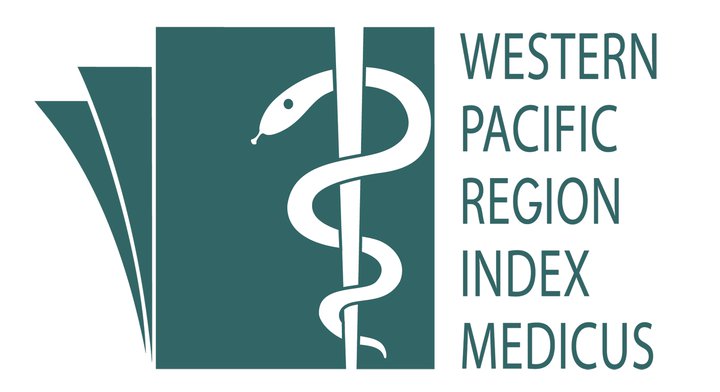Elderly Diabetic Patients’ Perception on Family Support and Glucose Control
Keywords:
Family support - glucose control - elderly diabetics - qualitative.Abstract
Introduction
Elderly are often associated with multiple social and health problems. Family members are important in helping them doing their daily activities. For elderly diabetics, family support has a role in diabetes management and glucose control. The aim of this study is to explore the perceptions of elderly diabetics regarding the role of family support on their glucose control.
Methods
This qualitative technique was a part of the study on glucose control and its associated factors among elderly diabetics. It was conducted from February until May 2009 in Kulim. Ten respondents were purposively sampled based on their glucose control. HbA1c 6.5% or less was considered as good glucose control. In depth interview, using semi-structured interview guide was used in this study. The conversation had been taped, transcribed to verbatim and analyzed manually using thematic analysis.
Results
All ten respondents perceived that family support did not play a role on their glucose control. They believed that self-awareness and self-determination were important to control the glucose level. Those with good glucose control practiced healthy diet, and not affected by food prepared by their family members compared to those with poor glucose control. However, both groups claimed that, they did not receive much advice from their family members and no special food was prepared for them.
Conclusions
Elderly diabetics should be motivated on self-determination and focusing on good glucose control. Health education should be given to patients and their family members to increase their diabetes knowledge especially on useful advice and proper food preparation. It could motivate the elderly diabetics to control their glucose level.
Â
References
WHO. Health Statistics and Health Information Systems. Definition of an older and elderly person. 2009. [Cited 3 February 2009]. Available from http://www.who.int/healthinfo/survey/ageingdefnolder
World Population Ageing 1950-2050. United Nations. 2002.
Hass LB. Caring for community-dwelling older adults with diabetes: perspective from health care providers and caregivers. Diabetes Spectrum. 2006; 19: 240-244.
Naughton C, Bennett K, Feely J. Prevalence of chronic disease in the elderly based on a national pharmacy claims database. Age & Ageing 2006; 35(6): 633-636.
Sharifah Norazizan, SAR, Nurizan Y. Peranan dan cabaran dalam mensejahterakan warga tua.Institut Gerontologi, Universiti Putra Malaysia. 2005. [Cited 9 July 2008]. Available from: http://www.ircmalaysia.com/jkm/penerbitan_pop.asp?
Fatimah Y, Rahimah A. Penuaan dan sokongan sosial dalam pembangunan komuniti warga tua. Universiti Kebangsaan Malaysia. 2006. [cited 9 July 2008] Available from:http://www.pkukmweb.ukm.my/~psiko/BM/Fatimah%20Yusof.pdf
Murphy DJ, Williamson PS & Nease DE. Jr. Supportive family members of diabetic adults. Family Practice Residential Journal. 1994; 14(4): 323-331.
Jacobson S. & Wood FG. Contributions of children to the care of adults with diabetes. Diabetes Educator. 2004; 30(5): 820-826.
Epple C, Wright AL, Joish VN & Bauer M. The role of active family nutritional support in Navajos’ type 2 diabetes metabolic control. Diabetes Care. 2003; 26: 2829-2834.
Choi S & Rankin S Glucose control in Korean immigrants with type 2 diabetes. Western Journal of Nursing Research. 2009; 31(3): 347–363.
Nakahara R Yoshiuchi K, Suematsu H, Kuboki, T. Prospective study on influence of psychosocial factors on glycaemic control in Japanese patient with type 2 diabetes. Academy of Psychosomatic Medicine. 2006; 47: 240-246.
Trief PM, Sandberg J, Greenberg RP, Graff, K. Describing support: A qualitative study of couples living with diabetes. Families, System & Health. 2003; 21(1): 57.
Miller CK, Davis MS. The influential role of social support in diabetes management. Top Clin Nutr. 2005; 20 (2): 157-165.
Raveis V, Carrero M, Catz D, Tobin J. Disease management of older persons with diabetes: Perspectives on self-care.The Gerontologist. 2004; 44 (1): 423.
Williams GC, McGregor HA, Zeldman A, Freedman ZR & Deci EL. Testing a self-determination theory process model for promoting glycemic control through diabetes self-management. Health Psychol. 2004; 23(1): 58-66.
Williams GC, Saizow RB, Ryan MR. The importance of self- determination theory for medical education. Acad. Med. 1999; 74: 992-995.
Denham SA, Manoogian MM, Schuster L. Managing family support and dietary routines: Type 2 diabetes in rural Appalachian families. Families, System and Health. 2007; 25(1): 36–41.
Benoit SR, Fleming R, Philis-Tsimikas A, Ji M. Predictors of glycaemic control among patients with type 2 diabetes: A longitudinal study. BMC Public Health. 2005; 5: 36–44.





